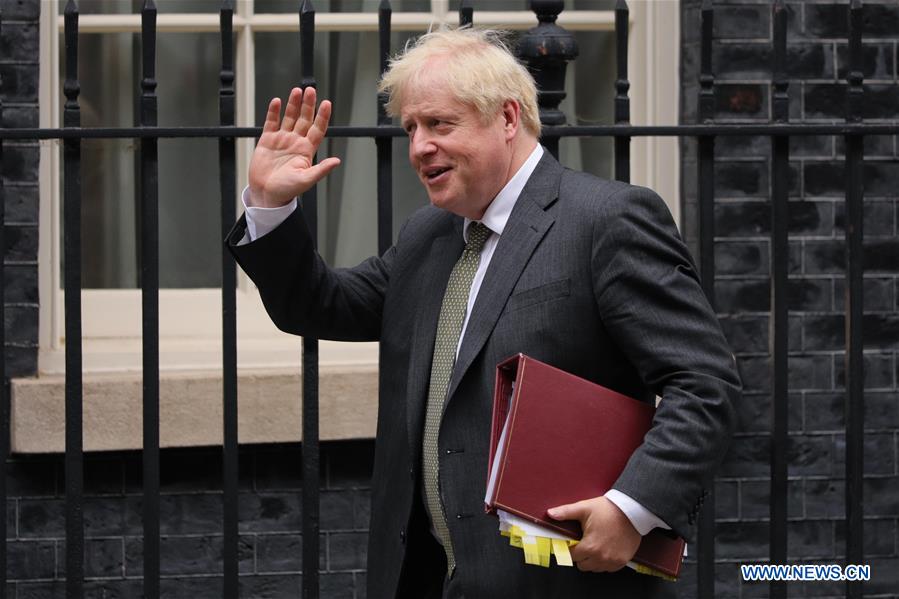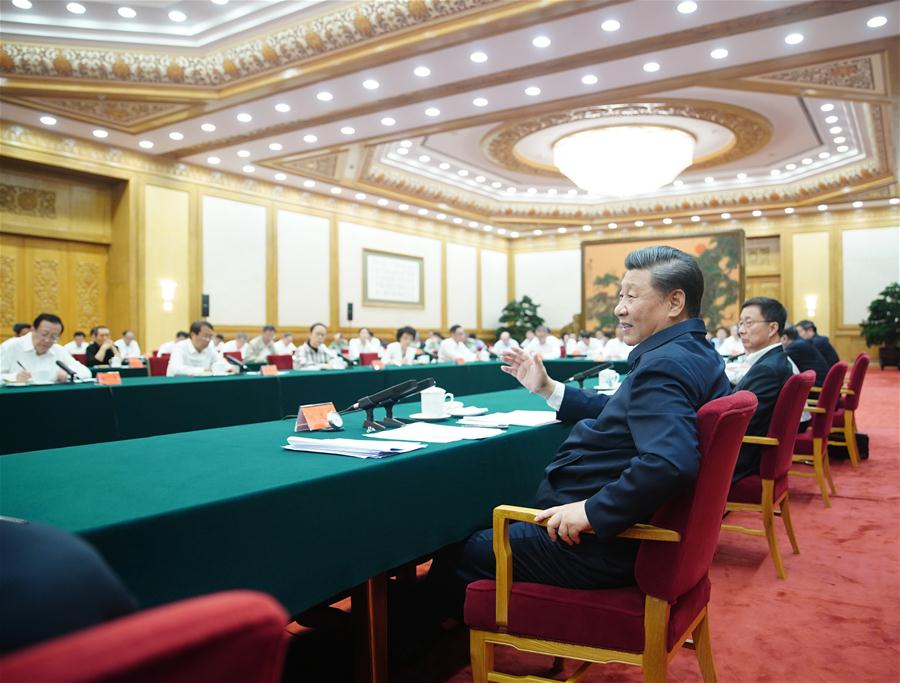
Britain's Prime Minister Boris Johnson leaves 10 Downing Street to attend Prime Minister's Questions at the House of Commons, in London, Britain, on Sept. 23, 2020. Johnson's controversial Brexit-related Internal Market Bill completed the first stage on Tuesday of its journey to becoming law. The bill, which ministers have admitted will breach the international law of Brexit agreement with the European Union (EU), passed its crucial second reading stage ahead in the House of Commons before heading to the House of Lords where it is expected to be given a stormy reception. (Photo by Tim Ireland/Xinhua)
LONDON, Sept. 22 -- British Prime Minister Boris Johnson's controversial Brexit-related Internal Market Bill completed the first stage on Tuesday of its journey to becoming law.
The bill, which ministers have admitted will breach the international law of Brexit agreement with the European Union (EU), passed its crucial second reading stage ahead in the House of Commons before heading to the House of Lords where it is expected to be given a stormy reception.
Johnson's Internal Market Bill addresses part of the Withdrawal Agreement -- the Northern Ireland Protocol, which is intended to ensure Northern Ireland can continue to enjoy unfettered access to markets in the rest of Britain.
It was published after London brushed aside warnings from Brussels that breaching the treaty would prevent any trade deal from being struck.
Johnson said the legislation was necessary to prevent the EU taking an "extreme and unreasonable" interpretation of the provisions in the Withdrawal Agreement relating to Northern Ireland.
A critical vote Tuesday was averted when Johnson's government accepted an amendment put forward by a group of rebel politicians from Johnson's own Conservative Party.
The amendment, which offers the British Parliament a say before proposed ministerial powers to break international law are used went through the Commons Tuesday night without a vote being taken.
Johnson's predecessor at 10 Downing Street, Theresa May, has announced in the House of Commons that she will oppose the bill after accusing the government of acting "recklessly and irresponsibly" without thinking of the long-term consequences.
The compromise reached between 10 Downing Street and the rebel MPs did not go far enough, said May, warning lawmakers in the Commons that breaching international law will cause "untold damage" to the country.
"I cannot emphasise how concerned I am that a Conservative Government is willing to go back on its word, to break an international agreement signed in good faith and to break international law," she told MPs in a Commons debate on Monday.
An amendment Tuesday put forward by opposition MPs was heavily defeated by 350 votes to 63, with Conservatives rallying around the government.
The Times in London reported late Tuesday that ministers are to delay the final stages of the Internal Market Bill until just days before a potential no-deal Brexit.
The Times said in a move being seen as an attempt to assuage the EU, ministers have indicated that the internal markets bill may not be debated in the House of Lords until after a make or break summit with EU leaders in mid-October. It could mean the bill not returning to the Commons for a final vote until December.
Britain ended its membership of the EU on Jan. 31, but is following the bloc's trade rules during a transition period which runs out on Dec. 31.
Britain and Brussels are currently seeking a post-Brexit trade deal to run from Jan. 1, 2021, but so far there are still a number of sticking points.












